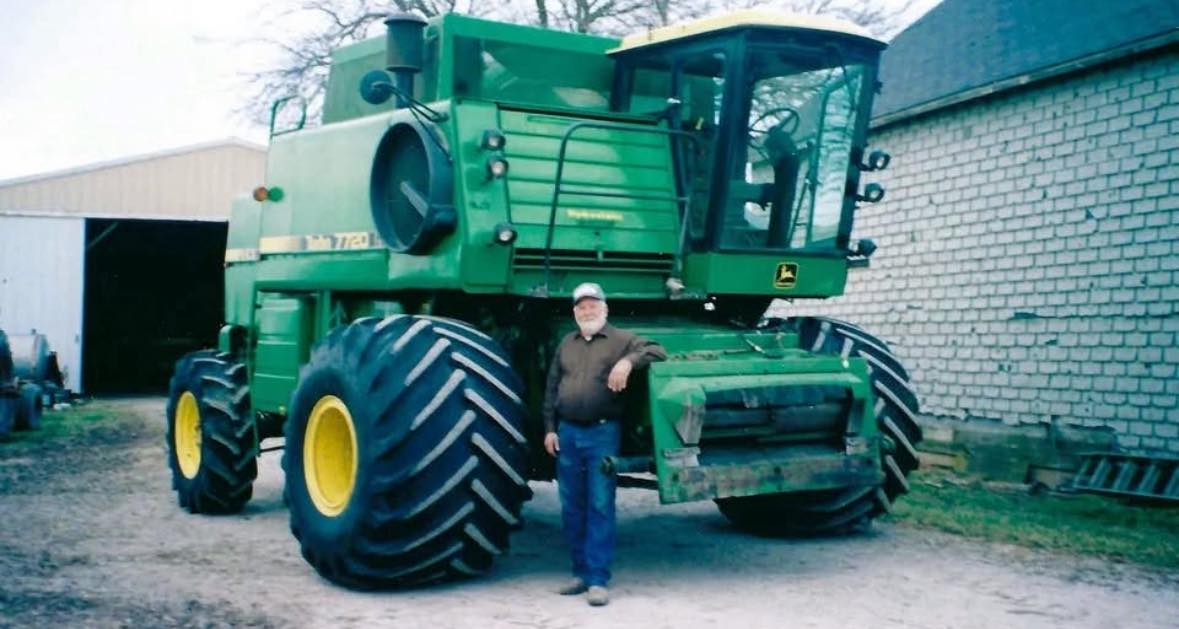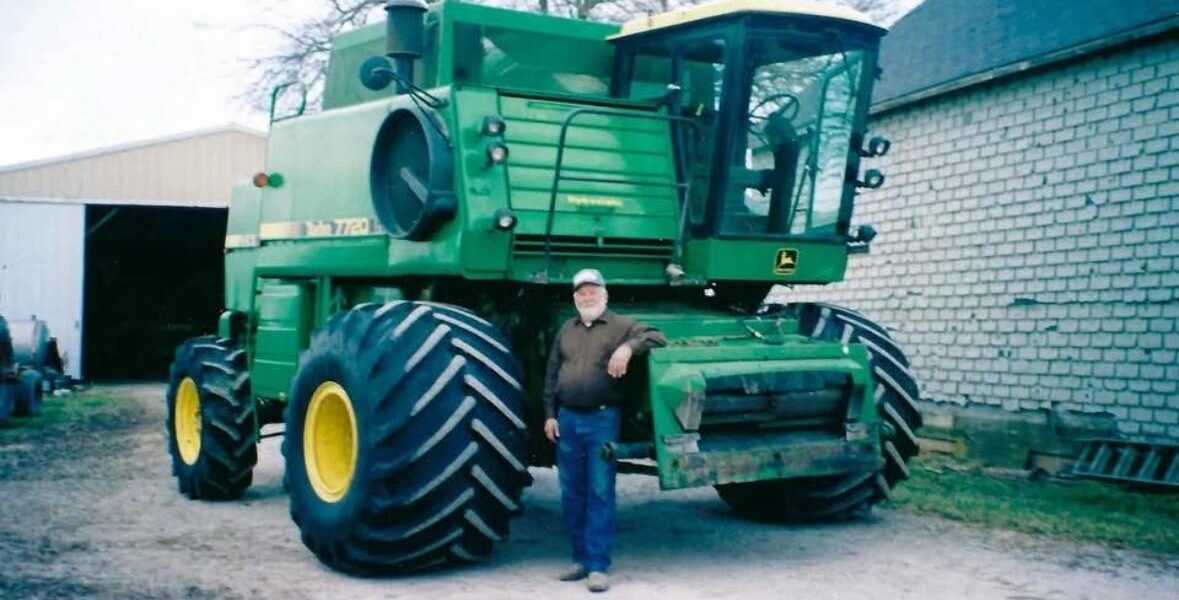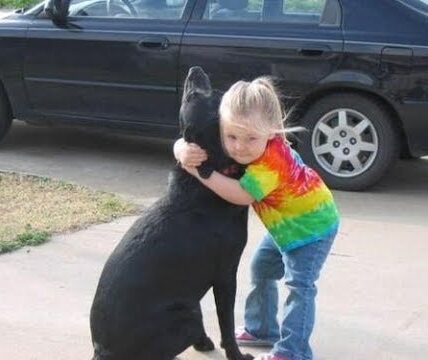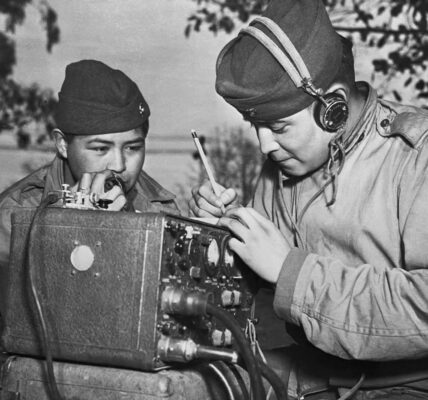How One Old Mechanic Helped Hold a Farming Town Together, One Broken Machine at a Time.
Fixing More Than Machines

In the dust-choked fields of Pine Ridge, Kansas — where wind howls through empty barns and the dirt seems to cling to your very bones — lived a man named Earl. At 70, his hands were as rough as gravel, notched with scars from decades spent coaxing stubborn engines back to life.
For most of his years, Earl’s small shop on the edge of town had thrived. Farmers brought him combines that wouldn’t cut, tractors that refused to start, harvesters that coughed and sputtered in protest. Earl never advertised; he didn’t have to. Folks knew if it was made of bolts and belts, Earl could fix it.
But when the agribusiness giants rolled in, swallowing up family farms with fat checks and fine print, Pine Ridge began to empty. Small farmers packed up generations of sweat and hope, moving on because they had no other choice. By 2022, Earl was alone most days, his shop echoing with the hollow clink of tools he’d started selling for scrap just to keep the lights on.
Then one morning, he found a scrap of paper taped to his door:
“Earl, my planter’s dead. Crops’ll rot. Can’t afford a new one. — Maggie.”
Maggie was a third-generation farmer, hanging on by her fingernails to eighty acres her grandparents had cleared by hand. Earl read the note twice, sighing as pain burned through his swollen knuckles. Arthritis was winning a slow war on his body, but after a long minute, he pulled on his cap, loaded his toolbox into his battered truck, and drove out to her field.
Under a blazing Kansas sun, Earl crawled beneath the planter, sweat dripping off his nose, muttering curses that’d make a crow blush. For six hours he fought rusted bolts and brittle wires, patching it up with baling twine and bits of scrap iron.

“Won’t last forever,” he grunted as he wiped his forehead. “But it’ll get you through this season.”
Maggie tried to press a crumpled $20 bill into his hand. Earl shook his head. “Keep it for diesel.”
Word got around. Earl’s shop didn’t exactly reopen for business — it reopened as something else entirely. A lifeline.
He rigged a dairy farmer’s busted milking machine back to working order with parts from a dead refrigerator. When a greenhouse’s thermostat failed, Earl rewired it with a car battery and duct tape. One desperate young man showed up hauling a cultivator so rusted it looked like barn art. Earl spent all night at his bench, finally rolling it back out with a note taped on top:
“Grease the gears every 3 days. Don’t skip.”
Then came the storm. A freak hailstorm that shredded half the county’s soybean fields and caved in Earl’s own barn under the weight of icy rubble. He stood there the next morning, shoulders slumped, surveying the wreckage.
But at dawn, trucks began rolling up. Farmers tumbled out carrying tarps, boards, and battered old shovels. They worked for two days under a patchwork sky, raising new walls from salvaged timber. At night, they lit lanterns and passed around pie tins and coffee. Maggie handed Earl a jar of honey.
“You kept us going,” she told him simply. “Now we’re keeping you.”
After that, Earl never charged a dime. He started a little “Parts Library” out back — a shed stacked with donated gears, belts, motors, tagged with handwritten notes:
“Take what you need. Leave what you can.”
Young farmers began drifting in, learning under Earl’s watchful eye. Their hands blackened with oil as he growled,
“Listen to the engine’s knock. It’ll tell you what’s wrong long before you see it.”
The shed became more than a repair shop. It was a place to swap seeds and spare parts, recipes and old stories. A college student stopped by one afternoon, filmed Earl resurrecting a corn thresher, and posted it online. The video went viral, thousands of strangers marveling at this old man’s stubborn skill.
Earl just shrugged.
“Ain’t about me,” he said. “It’s about dirt, machines, and folks who won’t quit.”
No, Earl didn’t save Pine Ridge with miracles. He saved it with grease-stained hands, relentless grit, and the quiet belief that no one should lose everything because a piece of iron broke.
His story isn’t really about charity. It’s about preserving the soul of a community — proving that progress doesn’t have to erase people. That often, the strongest threads in society are stitched by those willing to crawl under a dying machine at dawn, fix what’s broken, and remind us all:
We’re in this together.




